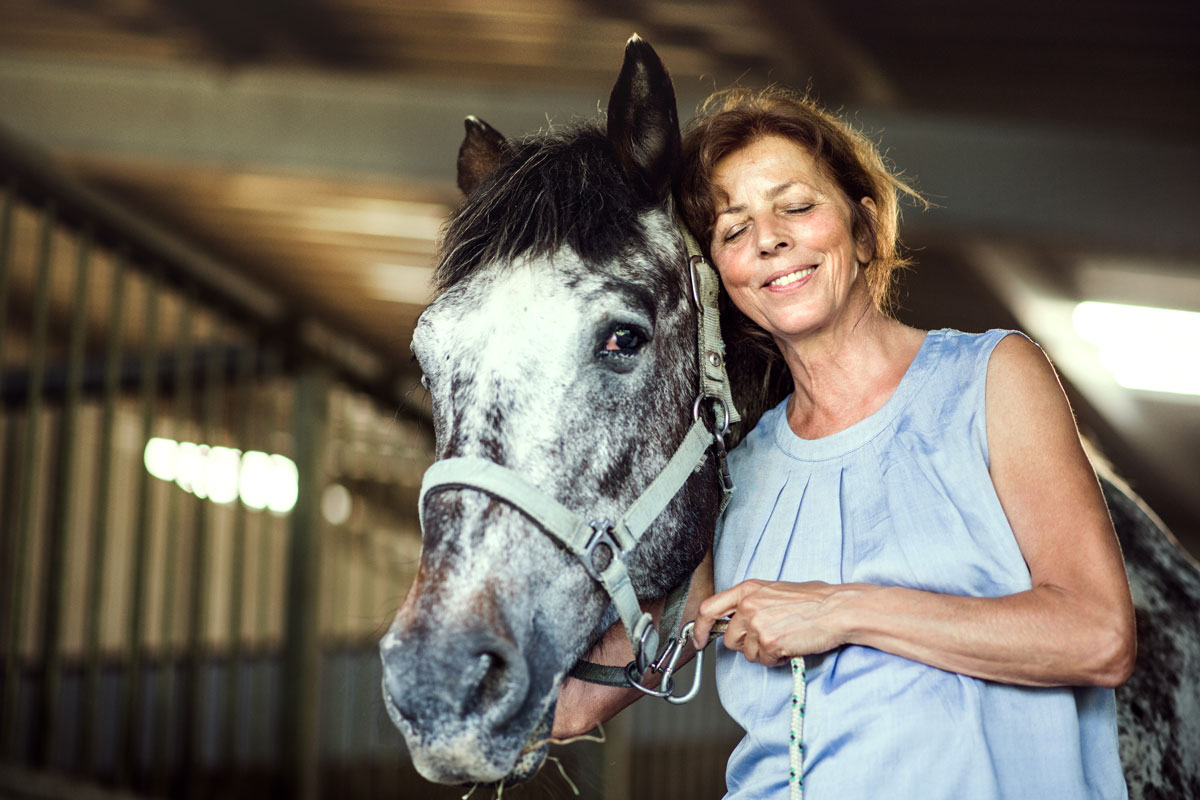
Since some old horses have trouble keeping body condition, there are many commercial “senior feeds” and also some supplements to add to the diet. Some special feeds contain extra fat, but you can also add a fat supplement or something like vegetable oil, said Tia Nelson, DVM, a veterinarian who is a horse owner and practitioner near Helena, Montana.
She recommended that owners look at the actual amino acid profile in the feed purchased for an older horse. It’s not so much the amount protein that’s in the feed that’s important, but the amino acid content within the protein. The type of protein makes the difference.
Studies have shown that increased lysine and threonine (which are two of the limiting amino acids) can help older horses. If these are increased, you might see less decline in muscle mass. Having sufficient quantities of these amino acids can help the horse maintain muscle structure better.
Some probiotic products also can help the older horse. The microbial population in the cecum and large colon declines with age. The older horse doesn’t have as many microbes to ferment the feed. It also helps to feed a fermented fiber source, such as haylage, which is already broken down a little.
Many people use joint supplements for older horses to try to alleviate arthritis, but most of them are oral. They have to go through the stomach, where the stomach acids destroy most of the ingredients before they get into to the bloodstream to go to the joints. Some experts feel you get minimal benefit from oral supplements. These supplements are probably useful, but it will take a lot longer to see results—and you need to make sure the joint supplement you are using has the right compounds and correct amounts, said Nelson. She recommended talking to your veterinarian about these types of supplements.
An injectable supplement bypasses the GI tract and more of the product goes directly to the joints, noted Nelson. Therefore, you tend to see better results. The injectable products are more expensive, but most people feel they work better—especially the supplements that have high concentrations of hyaluronic acid. The results will also depend on the severity of the arthritis condition. If it’s just mild arthritis, you might see good results. If it’s severe, you might not see much result with oral supplements and you’d have to use the injectable to give the horse relief.
Discuss arthritis options with your veterinarian to better understand what you can do to help maintain your older horse’s joints and address any pain issues. Look for research in products that shows efficacy.
Also talk to your veterinarian about pain issues your horse might face with arthritis. There are several options that could help alleviate or reduce pain in your older horse.
Much as been learned in the past decade about better caring for senior horses through diet, exercise, joint management and pain relief.


